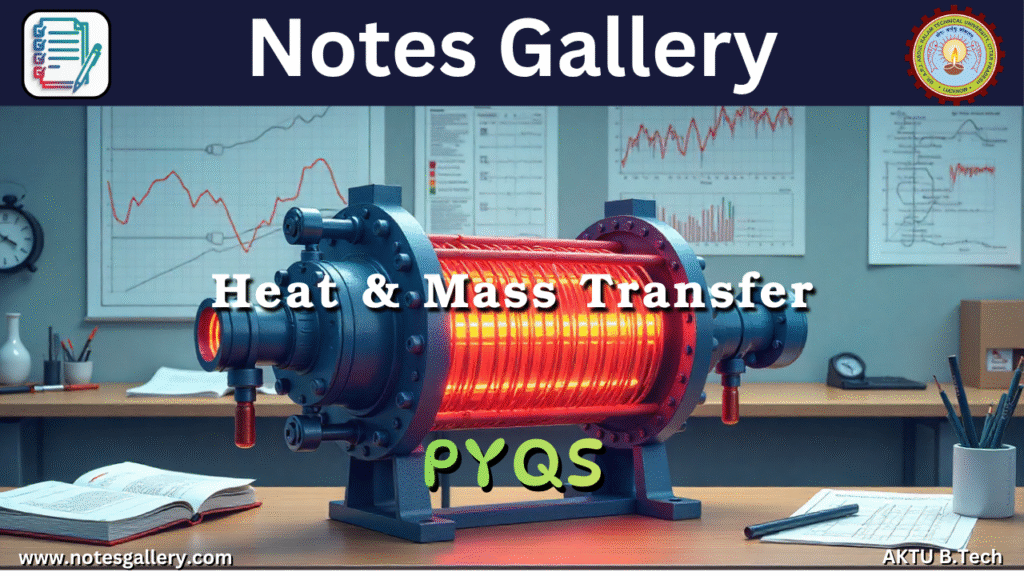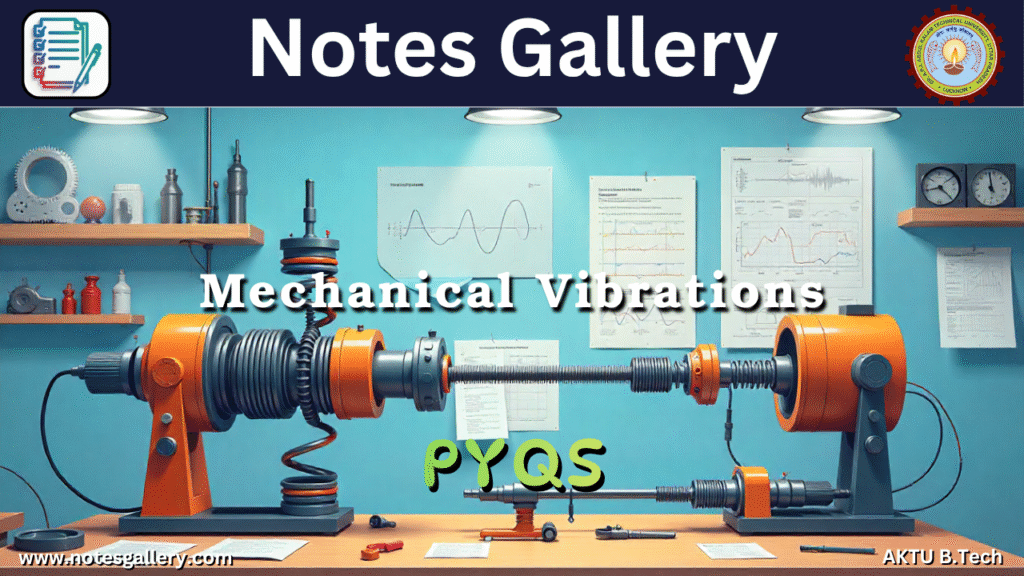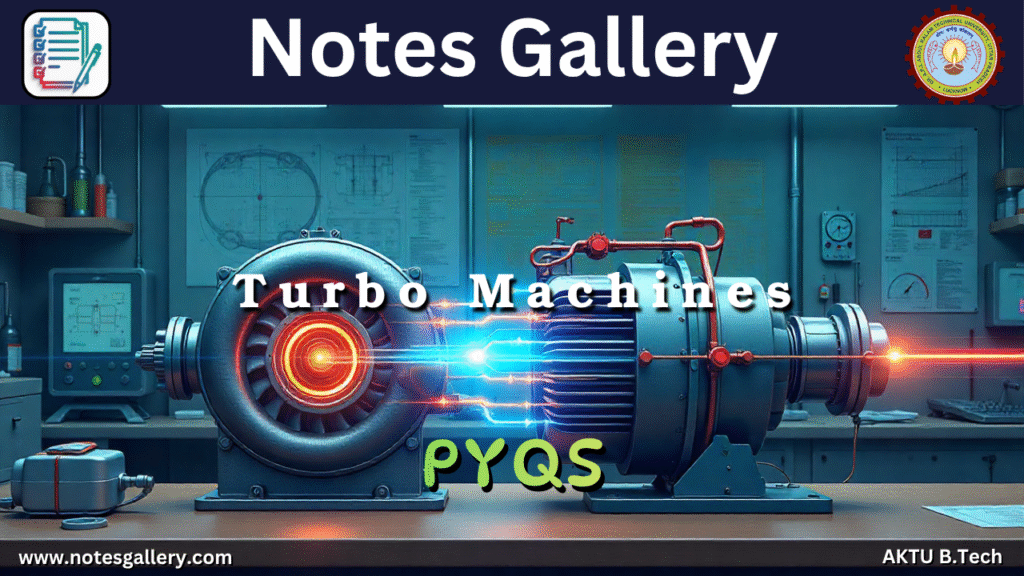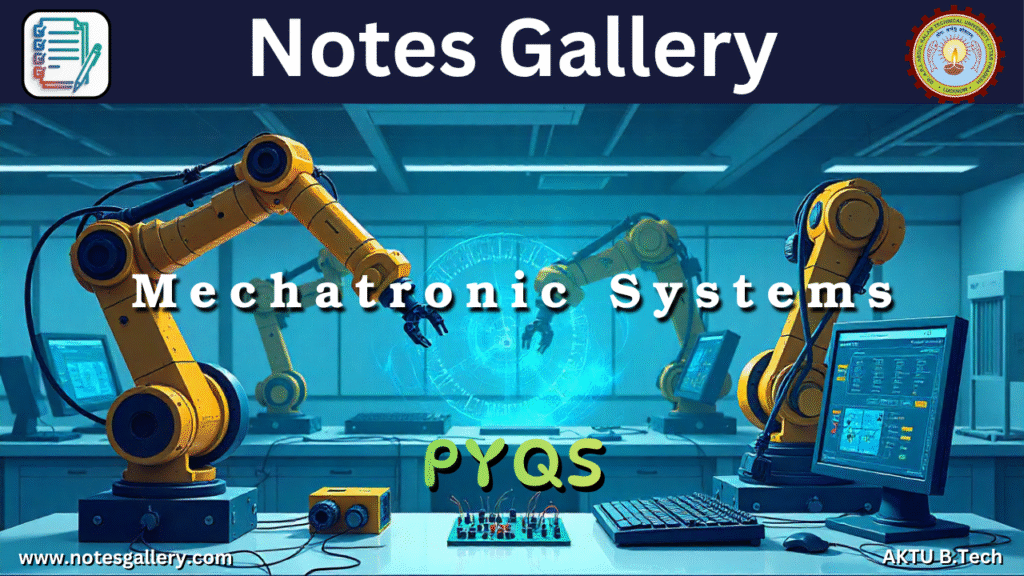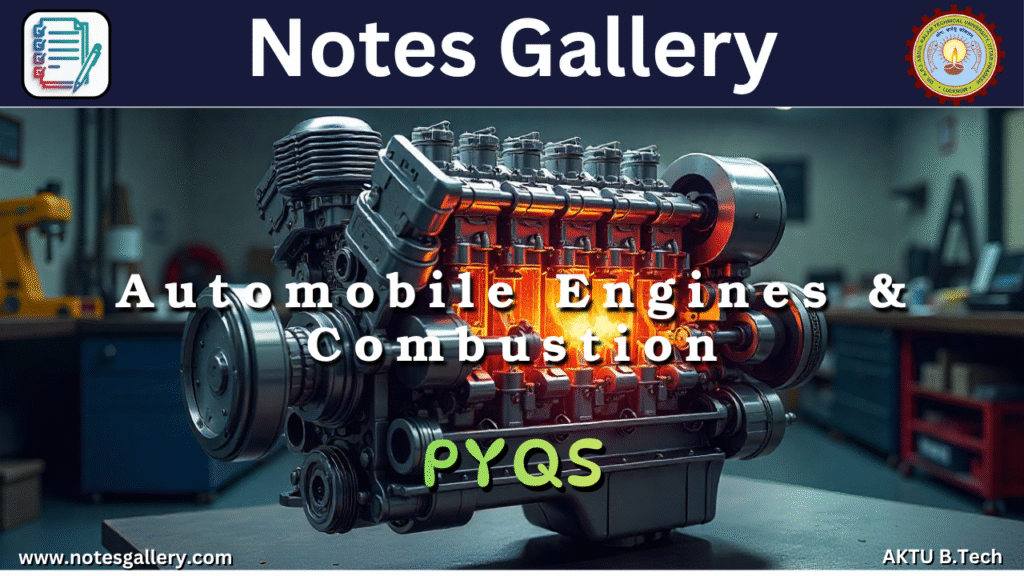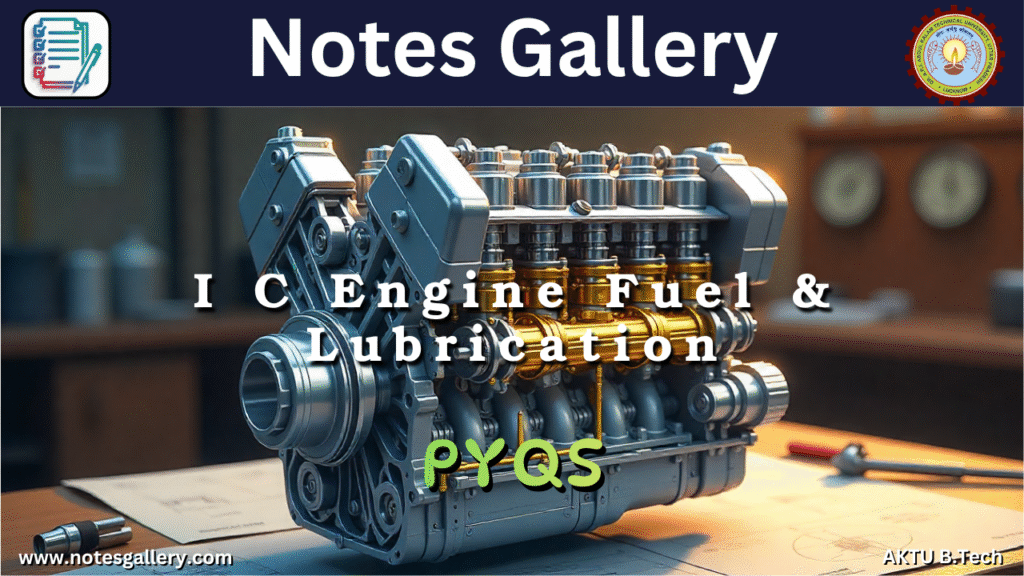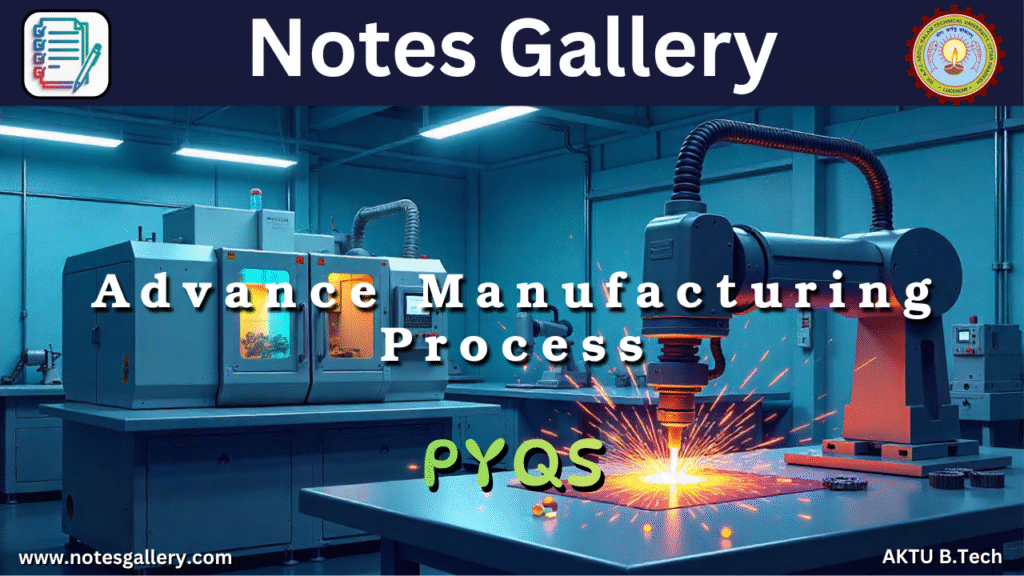For Mechanical Engineering students under AKTU, Finite Element Methods (FEM) is one of the most analytical and concept-heavy subjects in the 3rd year curriculum. It provides a powerful approach to solving complex engineering problems, especially in areas involving stress analysis, heat transfer, and vibration. To prepare thoroughly, solving Mechanical 3rd Year AKTU PYQS (Finite Element Methods) is the smartest strategy. These PYQs help students understand exam trends, identify important topics, and gain confidence before appearing in final exams.
On www.notesgallery.com, you can download free PYQs (Previous Year Question Papers) for Finite Element Methods and other Mechanical Engineering subjects. These question papers are prepared and organized as per the latest AKTU syllabus, helping students focus on the most relevant exam areas without wasting time.
| YEAR | LINKS |
|---|---|
| 2020-21 | NA |
| 2021-22 | NA |
| 2022-23 | DOWNLOAD |
| 2023-24 | NA |
| 2024-25 | NA |
| 2025-26 | coming soon… |
Click Links given below for notes/Imp. Question/PYQs
https://notesgallery.com/aktu-b-tech-1st-year-free-study-materials/ First Year
https://notesgallery.com/aktu-b-tech-2nd-year-free-study-materials/ Second Year
https://notesgallery.com/aktu-b-tech-3rd-year-free-study-materials/ Third Year
https://notesgallery.com/aktu-b-tech-4th-year-free-study-materials/ Fourth Year
About the Subject – Finite Element Methods (FEM)
The Finite Element Method is a numerical analysis technique used to find approximate solutions to engineering problems. It plays a crucial role in structural analysis, thermal simulations, and mechanical design. In Mechanical Engineering, FEM helps in predicting how components behave under various physical conditions like load, temperature, and vibration.
Some of the main topics covered under Finite Element Methods are:
- Introduction to FEM and its applications in engineering
- Discretization of structures and meshing concepts
- Derivation of element stiffness matrices
- 1D, 2D, and 3D element formulations
- Numerical techniques for solving FEM equations
- Error analysis and convergence study
- Applications in solid mechanics, heat transfer, and fluid flow
By studying these topics and practicing previous year question papers, students can easily understand the logic behind FEM and its real-world uses.
Why Practice Mechanical 3rd Year AKTU PYQS (Finite Element Methods)?
Practicing PYQs is one of the most effective preparation methods. For Finite Element Methods, it not only builds conceptual understanding but also sharpens problem-solving skills. Here’s why solving Mechanical 3rd Year AKTU PYQS (Finite Element Methods) is crucial:
- 📘 Familiarity with Question Patterns: Understand the structure of theoretical and numerical problems commonly asked in AKTU exams.
- 🧠 Concept Reinforcement: Solve numerical questions to strengthen your understanding of stiffness matrices and boundary conditions.
- 🕒 Time Management: Learn to handle lengthy derivations efficiently during exams.
- 📈 Trend Analysis: Identify repeated and high-weightage topics that frequently appear in past papers.
- 🔍 Exam Confidence: Build self-assurance by practicing with real exam questions and improving accuracy.
All these benefits can be achieved easily with free downloads from www.notesgallery.com, where Mechanical students can access all AKTU PYQs in organized PDF format.
Key Topics Often Asked in AKTU Exams
When preparing for Finite Element Methods, focus on these repeatedly asked topics found in AKTU PYQs:
- Steps in Finite Element Analysis
- Derivation of stiffness matrix for a truss or beam element
- Shape functions and natural coordinates
- Application of boundary conditions in FEM
- One-dimensional heat conduction problems
- Use of FEM in structural and thermal analysis
- Isoparametric formulation and numerical integration
- Error estimation and convergence
Understanding these areas thoroughly ensures that students are well-prepared for both theoretical and problem-based questions in the exam.
How to Prepare Using AKTU PYQs
To make the best use of PYQs, follow these preparation tips:
- 🔹 Solve Year-wise Papers: Start with the most recent papers to understand the latest trends.
- 🔹 Group Similar Questions: Note down commonly repeated numerical or theory questions.
- 🔹 Create Formula Sheets: Write down stiffness matrix equations, shape functions, and key derivations for quick revision.
- 🔹 Time Practice: Attempt solving one complete PYQ paper under timed conditions.
- 🔹 Focus on Important Derivations: Many 7- or 10-mark questions revolve around derivations and FEM formulations.
These practices will improve understanding, speed, and precision — exactly what’s needed for AKTU exams.
Why Choose NotesGallery for AKTU PYQs?
At www.notesgallery.com, Mechanical students can easily access free study materials, PYQs, and subject-wise resources for all semesters. Our Mechanical 3rd Year AKTU PYQS (Finite Element Methods) are:
- ✅ Free to access and download in PDF format.
- 📚 Updated as per the current AKTU syllabus.
- 🧩 Organized subject-wise for easy navigation.
- 🔍 Accurate and cleanly formatted for easy reading and printing.
In addition to Finite Element Methods, students can also download PYQs for:
- Heat & Mass Transfer (HMT)
- Machine Design
- Industrial Engineering
- I.C. Engine Fuel & Lubrication
- Thermal Engineering
- Automobile Engineering
Each of these question sets helps students practice effectively for semester exams and boost confidence.
Benefits of Practicing Finite Element Methods PYQs
By practicing AKTU PYQs (Finite Element Methods) from NotesGallery, students gain:
- ✅ A better understanding of important derivations and numerical methods.
- 🧠 Enhanced ability to apply FEM theory to real-life mechanical problems.
- 🕒 Improved exam performance through pattern familiarity and revision efficiency.
- 📈 A strategic edge to score higher in university exams.
In short, regular PYQ practice transforms preparation from memorization to understanding — helping students achieve both conceptual clarity and exam excellence.
Conclusion
The Finite Element Methods subject is one of the most powerful tools in a Mechanical Engineer’s toolkit. It combines theory, mathematics, and computation to solve real-world engineering problems. By practicing Mechanical 3rd Year AKTU PYQS (Finite Element Methods) from www.notesgallery.com, students can strengthen their grasp of core topics, analyze exam trends, and prepare confidently for success.
Visit www.notesgallery.com now and download all the Mechanical PYQs for free. Study smarter, not harder, and master the art of Finite Element Analysis with consistent practice.


